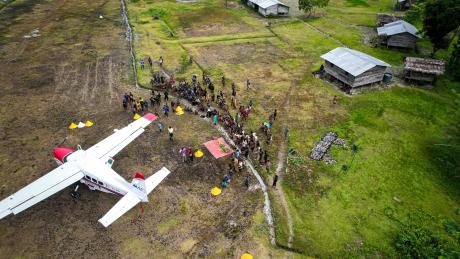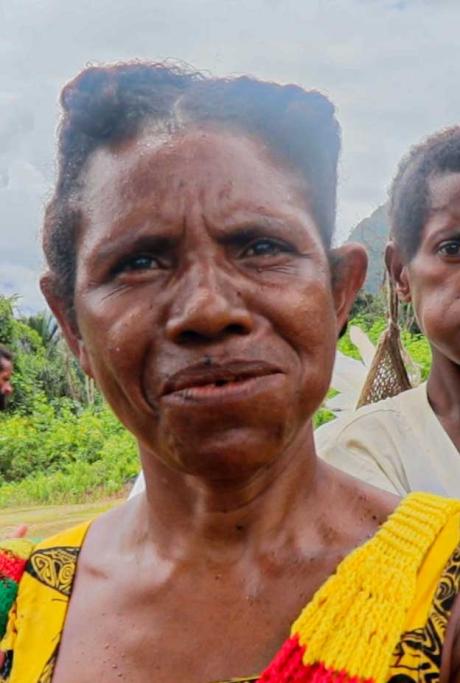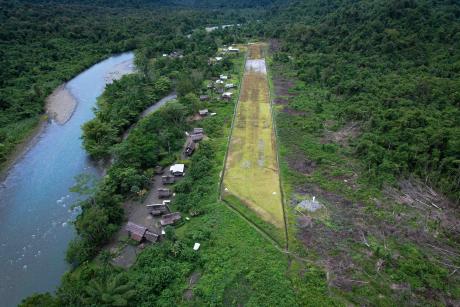
MAF planes can now bring vital medical flights to the isolated community of Fiyak after villagers spent more than three years rebuilding their airstrip
Story by Joy, Suarkia
When Siani was pregnant, she had a fear of travelling by canoe to go to the nearest health facility to deliver her baby.
Most women would not make it in time, and they would either loose their lives or their baby trying to give birth in a small canoe on the May River or beside the banks of the river if they were required to stop.
But with no proper access to roads in her community of Fiyak in Papua New Guinea’s West Sepik Province and no safe airstrip for MAF’s planes to land, the only way to reach health services was the perilous boat journey.
“It is a frightening experience for mothers to travel three days by canoe just to deliver our babies at the proper health centre so many of us choose to have our babies where we are comfortable at home, but then unassisted delivery also leads to the loss of lives,” said Siani.

For women who choose to stay and deliver their baby in Fiyak that means they would have to do so without proper midwifery assistance and the reality is that mothers are also at risk of losing their lives and the lives of their babies.
The mum was celebrating with other families when a MAF plane made its first official landing on the Fiyak airstrip, which had been rebuilt by the community with training and equipment provided by the Rural Airstrip Agency.
With excitement Siani added that “the newly opened airstrip will change everything for them” because pregnant mothers and critically ill patients can access proper medical services in time.

Community Leader Jeff Kukilim talked about the struggles that Fiyak faced during the past three and a half years without access to basic services.
“Our Remote Health Centre was greatly affected because we could not receive nor have access to medical supplies and transport for patients who were critically injured,” he said.
Community health worker Joel said the airstrip made it possible for staff and supplies to reach the area, and for patients to be transported safely to hospital.
“It was hard for our community because many lives were lost during the last three years,” he said.
RAA Technical Advisor Jonny Watson said the organisation, which works to restore and maintain airstrips in rural PNG, works closely with MAF and local communities.
“We enable the community to maintain their airstrips, but it is actually the communities that take the initiative to fix their airstrip,” he said.
MAF and RAA working together with the communities really complements each other’s work and makes a huge difference for the communities enabling the communities to receive the vital services that they need.